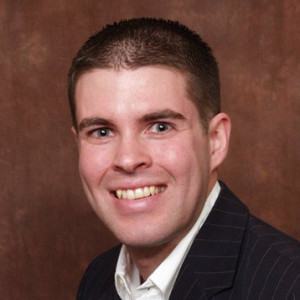 Some days I feel like I have very little right to speak. Even as a preacher. Maybe especially as a preacher. I have little right to speak to minorities who have known discrimination and bigotry their whole lives. I have little right to speak to those who are economically disadvantaged and suffering in tangible ways. I have little right to speak to those fleeing violence and persecution in their countries of origin.
Some days I feel like I have very little right to speak. Even as a preacher. Maybe especially as a preacher. I have little right to speak to minorities who have known discrimination and bigotry their whole lives. I have little right to speak to those who are economically disadvantaged and suffering in tangible ways. I have little right to speak to those fleeing violence and persecution in their countries of origin.
I am a straight, white, upper-middle-class, American, Christian man. I need to do more listening. Listening to the brokenhearted. Listening to the poor. Listening to the single mother. Listening to the ostracized. Listening to those wondering where their next meal will come from. Listening to the teen labeled “at risk” by all the adults in his life. Listening to people who will never experience the world beyond their urban community or rural county. Listening to people with differing political opinions and biases than the ones I harbor.
In a polarized world, listening seems a rarity. Everyone is shouting. It’s hard enough to listen to the shouting when it’s my own children (whom I love). Listening to the cacophony of clamorous caterwauling between grownups I’ve never met? I find it vociferously deafening.
How can we listen in a culture of shouting, especially when listening to shouting is so spiritually and emotionally draining? The question is largely rhetorical, because I do not profess to know the answer in full.
“Sermonizing is not a solution to the listening deficit in our culture.”
More and more, I find that friendship and personal relationships are the only way to listen deeply. I try to listen deeply to God’s Spirit when preaching and speaking, but in the moment of preaching, the conversation is vexingly one way. Sermonizing, then, is not a solution to the listening deficit in our culture.
The fact is, different people have different perspectives and experience reality differently. Media coverage of a recent encounter in the nation’s capital between a Native American elder and the Catholic schoolboy attests to this. Nobody wants to hear the other when everyone is ready to shout first. When everybody shouts, nobody is truly heard.
When we fail to listen to the other, we make the mistake of reducing people made in God’s image to foregone conclusions, concise soundbites and imbedded biases intent on demonization. Instead of jumping on every viral video meant to induce outrage, should we not listen first (which may result in thinking before responding)?
I’m afraid we don’t have the patience for listening fully and respectfully. Doing so may require a few days or weeks or even longer. What if the news cycle – which often is more accurately an outrage cycle – passes us by in our listening? Wouldn’t that be a gift?
Of course, listening in the right ways gives our words more power when it is time to speak. Too often the things we say stem from confirmation bias and parroting someone else’s talking points than any deep reflection on our part.
“Listening in the right ways gives our words more power when it is time to speak.”
Understanding the need to listen deeply does not remove the responsibility or burden of speaking. In his famous speech at Riverside Church on April 4, 1967, Martin Luther King Jr. said, “I knew that I could never again raise my voice against the violence of the oppressed in the ghettos, without having first spoken clearly to the greatest purveyor of violence in the world: my own government.”
Have any of us paused, or listened long enough, to consider that the Native American elder and the Catholic school boy were both in Washington that day to do (in their own way and according to their own understanding) what King called us all to do? Aside from their encounter with each other, each was there to speak against what they understand to be oppression and to lift up a “voice for the voiceless,” as Oscar Romero said.
In a previous column, I wrote about the challenge of preaching weekly and trying not to lose my voice in the current culture. I’m growing more convinced that it’s only out of listening – and hitting a personal pause button on all the feigned and manufactured social outrage – that I actually have a voice. Whenever I join the chorus of outrage my voice is no longer my own, but that of group-think, confirmation bias, partisan pundits and talking heads.
Failing to speak amid injustice and abuse of power is a sin, to be sure. When we fail to speak we lose our agency, voice and prophetic witness. All the same things happen when we fail to listen.
As a follower of Jesus living in a divided culture, how do you balance listening and speaking?
